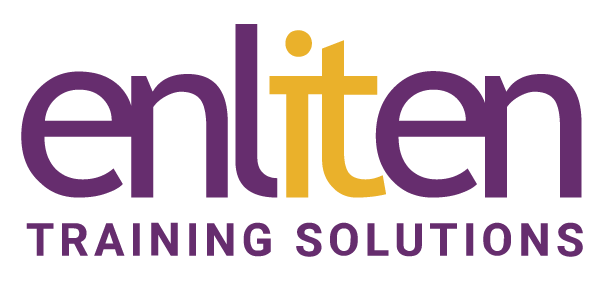This Oracle SQL Fundamentals course is designed to give delegates practical experience in writing Oracle SQL statements and scripts. A wide range of SQL functions and data manipulation statements are introduced.
Delegates will practice:
- Creating Oracle SQL statements to query database tables
- Using standard aggregate functions and related SELECT statement clauses
- Implementing extended SQL functions
- Joining Tables
- Using subqueries
- Using SQL parameters
- Creating and altering tables and views
- Inserting, updating and deleting rows in database tables
- Managing sequences and synonyms
- Retrieving Data Using Correlated Subqueries, In-Line Views and Multi-Column Subqueries
- Using the WITH Clause
- Inserting and Updating Rows Using Complex Subqueries
- Creating Hierarchical Queries
- Creating Analytic Queries
- Using ROLLUP, CUBE and GROUPING SETS Group By Enhancements
- Implementing the GROUPING and GROUPING_ID Functions
- Managing Large Data Sets
- Inserting Data Conditionally and Unconditionally
- Merging Rows in a Table
- Creating TIMESTAMP and INTERVAL Datatypes
- Using TIMESTAMP, TIMEZONE and INTERVAL Functions and Literals
- Using Regular Expressions and Implementing Related Functions
- Managing Objects with the Data Dictionary
- Managing Schema Objects
- Performing Flashback Operations
- Creating and Using External Tables
- Controlling User Access to Database Objects
What will you learn?
On completion of this Oracle SQL Fundamentals course delegates will have the knowledge to query and update data held in an Oracle Relational Database.
Audience?
Anyone needing to use Oracle SQL to query and update data in an Oracle database.
Course Contents
RELATIONAL DATABASE CONCEPTS
- What is an Oracle Database
- Relational Database Structures
- Tables, Rows and Columns
- Indexes, Primary Keys and Foreign Keys
- Supported Datatypes
- The Data Dictionary
USING SQL*PLUS and DEVELOPER
- What is SQL*Plus
- Getting Started
- Entering and Executing SQL Statements
- The SQL*Plus Command Line History
- Editing SQL Statements
- The login.sql File
- Creating, Editing and Executing SQL Files
- The SQLcl Utility
- What is Oracle SQL Developer
- Starting SQL Developer
- Configure a Connection
- Navigation Tabs
- SQL Worksheet
- Query Builder
RETRIEVING DATA WITH THE SELECT STATEMENT
- The SELECT Statement
- The SELECT and FROM Clauses
- Conditions and the WHERE Clause
- Other Conditional Operators
- Logical Operators
- The ORDER BY Clause
- Column Aliases
- Arithmetic Expressions
- Precedence of Operators
- Markup CSV
AGGREGATE FUNCTIONS & JOINING TABLES
- Overview of Built In Aggregate Functions
- The GROUP BY Clause
- The HAVING Clause
- Overview of Table Joins
- Inner Joins
- Table Aliases
- Outer Joins
- Self Joins
- ANSI Standard Joins
BASIC SUBQUERIES AND SET OPERATORS
- Overview of Subqueries
- Basic Subqueries
- Set Operators
NUMERIC, CHARACTER AND DATE FUNCTIONS
- Function Types
- Using the Table dual to try out Functions
- Numeric Functions
- Character Functions
- String Concatenation
- Date Arithmetic and Date Functions
CONVERSION AND MISCELLANEOUS FUNCTIONS
- Conversion Functions
- The NVL and NVL2 Functions
- The DECODE Function
- CASE Expressions
- The COALESCE and NULLIF Functions
SQL PARAMETERS
- Command Line Substitution Parameters
- The Accept Command
- The Define and Undefine Commands
USING SUBQUERIES
- Overview of Subqueries
- In-Line Views
- Top-N Queries
- Complex Subqueries
- Multi Column Subqueries
- Correlated Subqueries
- Subquery Rules
- Using the ANY, ALL and SOME Operators
MANAGING DATA, TABLES, INDEXES and VIEWS
- Inserting, Updating, Deleting Rows
- Verifying Updates
- Transaction Control
- Commit and Rollback
- Savepoints
- Commits and Constraints
- Amending Data in SQL Developer
- Creating Tables
- Specifying Constraints
- Altering Tables, Columns and Constraints
- Dropping Tables, Columns and Constraints
- Copying Tables
- Creating Indexes
- Dropping Indexes
- Listing Indexes
- Creating and Using Views
- Dropping Views
- Listing Views
MANAGING SEQUENCES AND SYNONYMS
- Create a Sequence
- View Sequence Details
- Create a Synonym
- List Synonyms
ACCESS CONTROL
- System Privileges and Roles
- Create Users
- Alter User Details
- Grant and Revoke Object Privileges
RETRIEVE DATA USING SUBQUERIES
- ANY, ALL or SOME Operators
- Correlated Subqueries
- In-Line Views
- The Exists Operator
- The WITH Clause
- Multi-Column Subqueries
- Insert and Update Using a Query
- Correlated Update and Delete
HIERARCHICAL and ANALYTIC QUERIES
- Hierarchical data
- The START WITH and CONNECT BY clauses
- The LEVEL pseudo-column
- Sequencing the output
- Eliminating nodes and branches
- Ranking functions
- The NTILE and WIDTH_BUCKET functions
- Analytic Aggregate functions
- The FIRST and LAST Value functions
- The LEAG and LAG Functions
- The LISTAGG Function
ENHANCED GROUPING FEATURES
- Review of basic grouping concepts
- The ROLLUP and CUBE extensions
- The GROUPING SETS extension
- Using the GROUPING and GROUPING_ID functions
MANAGE LARGE DATA SETS AND FLASHBACK TECHNOLOGY
- Multi-table Inserts
- Conditional and Unconditional Inserts
- Merging Data into a Table
- Table and View Based Merge
- A Sub Query Based Merge
- Flashback Query
- The AS Clause
- Flashback Table
- Flashback Drop
REGULAR EXPRESSION SUPPORT
- Regular Expression Notation
- Character matching
- Repetition operators
- Sub expression grouping
- Regular expression functions
THE DATA DICTIONARY and ADVANCED SCHEMA MANAGEMENT
- The Data Dictionary
- Useful Data Dictionary Tables
- Using the Data Dictionary
- Virtual columns
- Invisible columns
- Default values for table columns
- Function Based Indexes
- Creating and Using External Tables
DATE, TIME AND TIMEZONE SUPPORT
- Date, Timestamp and Interval datatypes
- Handling dates and times
- Handling intervals
- Date, timestamp and interval functions and literals
- Related NLS parameters
Course Materials
Enliten IT will provide each delegate with a workbook and other useful reference materials where applicable.
Prerequisites
There are no formal prerequisites for the Oracle SQL Fundamentals course, although an understanding of database concepts would be useful.
Additional Information
Enliten IT reserves the right to modify course content and materials as required in the interests of continuous course improvement, at any time, without notification.
Note: This Oracle SQL Fundamentals is run on a public schedule or can be taken as a private in-house company course UK wide. For pricing and availability just pick up the phone and call us on 0845 1085481.





